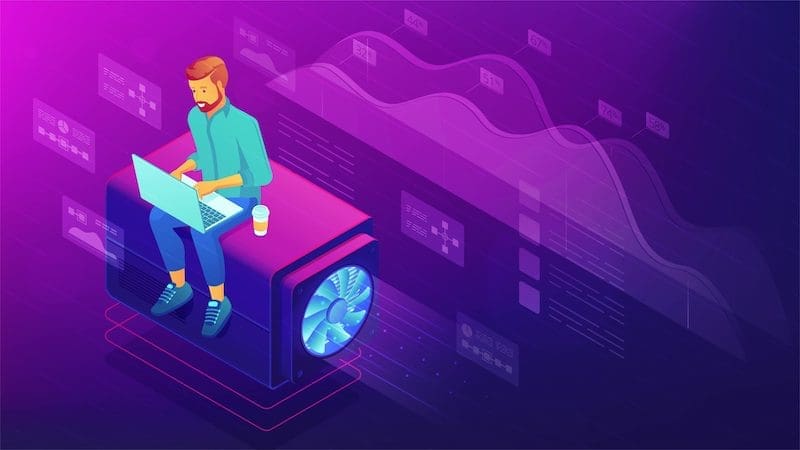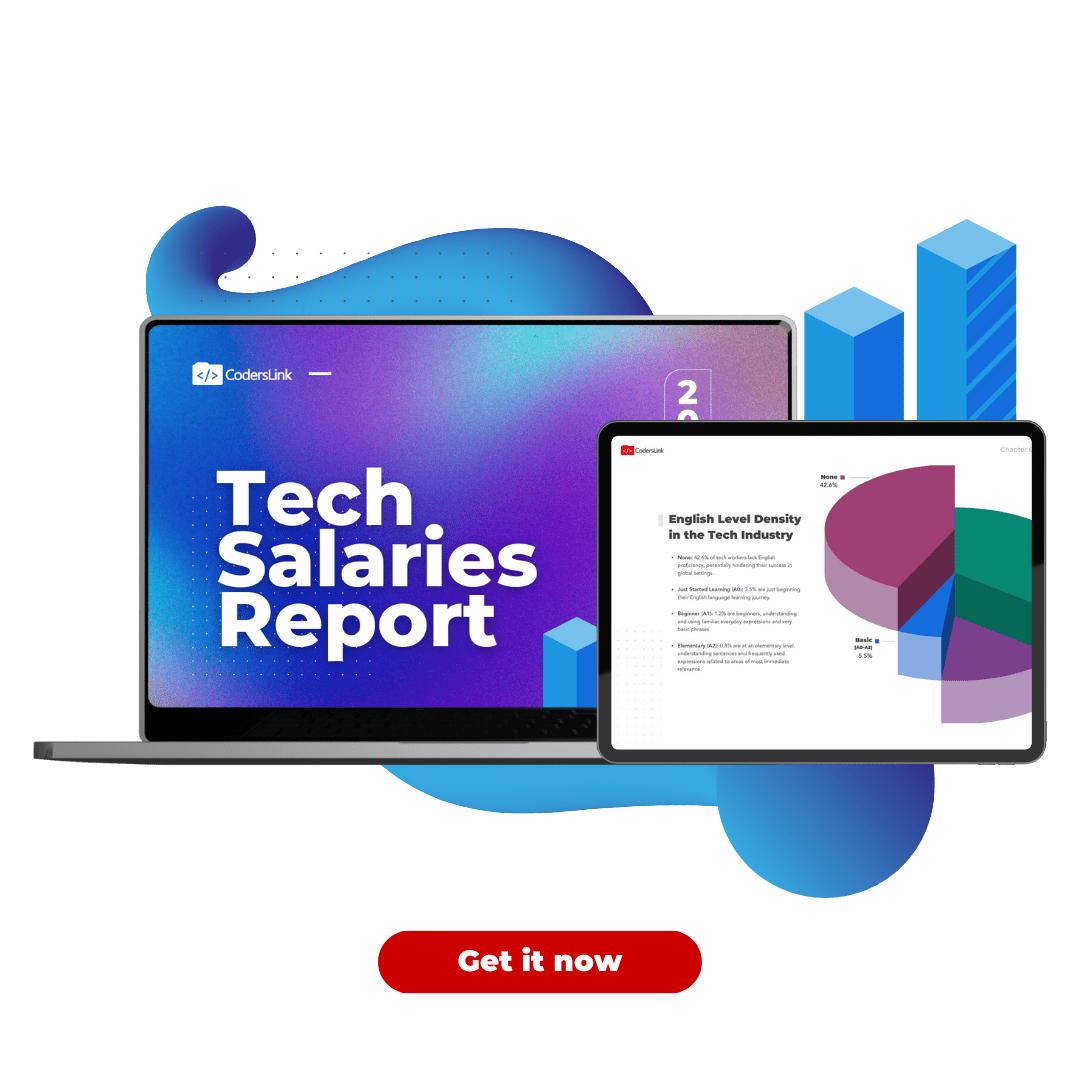
Finding the right developer is not an exact science. There is a lot to consider: the kind of project you’re working on, company needs, the scope of the project, salary expectations, etc. It’s important to note that when it comes to developers there are, essentially, three major types: front-end, back end, and full stack. Each is a different and specific strength that allows web applications to function or operate at optimal capacity.
If you think of a web application or website, there are several components that must work together. Imagine a film or theater production: there is far more that goes into it than just the actors and what we see on screen. There is a whole back end operation that ensures lighting, scenery, sound, etc are set up properly and correctly— not to mention the initial script. Similarly, when it comes to developers, the front-end developers are in charge of the client experience and what they see and interact with. The back end developers will work behind the curtain on the code and language that sustains everything. According to a survey by StackOverflow, about 12.2 percent of developers self-identify as mostly back end developers. This means they are slightly more rare and sometimes a little harder to find.
The back end developers work with the servers and the code and language that runs through. Neither back end or front-end developers work in a vacuum, however. They each work together in order to ensure that there is coherence and proper communication between all of the aspects.
Who are Today’s Back End Developers?
Today’s back end developers are tech savvy developers—many with a computer science degree—that likely have both front-end and back end experience. They understand the inner workings of a web application or website and how the behind the scenes components affect the overall application.
The Challenge of Finding the Right Developer
A good back end developer has spent a considerable amount of time developing their technical expertise. In contrast with front-end development, which uses a lot of automated tools, back end can be considered the most complex of the two. These developers make up an integral part of your company’s daily operation and overall success. It is key then, to understand the daily responsibilities of these developers and the kind of language you need or the kind of website or application you are looking to build or maintain.
The Main Responsibilities of Today’s back end Developers
Depending on the kind of online application you are using, the responsibilities may vary some. The back end of a website consists of three parts: a server, application, and database. So if your company has some kind of login or system that requires clients information to be saved, stored, or easily accessed, the back end developer is in charge of making that go smoothly. Narrowed down the responsibilities could be summarized as follows:
- Web development languages
- Database and cache
- Server
- API (REST and SOAP)
Technical Skills of a back end Developer
So what is a back end developer and what technical skills set them apart? As we already discussed, the back end deals with all the server, databases, and behind the scenes work that is required for a successful web application.
- Proficient in at least one back end language (preferably the one your company already uses)
- Working knowledge of front-end web technologies like HTML, CSS, and JavaScript
- Have the ability to operate and manage a hosting environment
- Have the ability of scaling applications to accommodate for load changes
- Deep understanding of accessibility and security compliance
- Experience with version control including Git
Major back end Languages To Keep An Eye Out For
There are several languages that are primarily used on the back end. Here are some of the main ones and what you should seek in your developer.
Ruby: This is a very smooth and classy language with elegant syntax and quite the must-have when it comes to a back end developers tool bag. It is an open source programming language that emphasizes productivity and simplicity.
Python: This is a general purpose programming language but is quite a ubiquitous, cutting-edge, and utilitarian language. This language is useful when building basic applications like desktop apps, Oss, Business Apps, and web frameworks, as well as AI and ML-based web development.
PHP: As an open-source back end scripting language it is used by developers to build web apps and sites. This is a relatively well-known language due to the fact that it can be quite easy to learn and is especially suited for web development and can be embedded into HTML.
Java: An object-oriented, concurrent, strongly typed language. Because of Java’s strength, power, and convenience, it has gained quite the popularity among developers and has become one of the most preferred languages.
Other Technical Specialties
In addition to proficiency and working knowledge of certain languages, other technical skills needed by a back end developer include:
Extensive knowledge of databases: Stacking and recovering data from databases might be a day-to-day occurrence. Having to store and recover data is a big part of the back end developer’s job.
Connecting to Application Programme Interface (API): When companies have an application for mobile, for example, alongside their principal site; these will normally require the ability to recover information for the display and require an Application Programer Interface, or API to associate with.
Server Handling: A database is what stores site content and product and client data. A database stores site content in a structure that simplifies the recovery or arrangement of said content. Server management is required to keep on track with this information. This means using and having expertise in any one of these: Docker, Kubernetes, Nginix, Node,js, New Relic, etc.
Knowledge of Popular Frameworks: Each language has its accompanying frameworks. Understanding the frameworks that go with your preferred language.
Soft Skills of a back end Developer
In addition to the wide range of technical skills that make a good back end developer, there are some required soft skills to look out for as well. Some of these include:
Organizational skills and versatility. Working with the back end of any web application requires the ability to be organized and versatile. Working with data and different frameworks necessitates the ability to go back and forth and solve problems on the fly.
Analytical skills and problem solving. Any tech role requires the ability to solve problems and analyze a situation. back end developers will deal with some troubleshooting of issues, bugs, etc.
Communication. Many back end developers will work as part of a team. Most companies, especially larger ones, might have a team of 2 or more working the back end and ensuring that the server and data is organized and functioning properly. At the same time, all back end developers must work with the front-end team. This constant communication keeps the operation running smoothly.
Common Interview Questions and Skills Assessments
What you ask a potential candidate can and should range from technical questions to sample skills assessments, as well as general questions that gauge the person’s soft skills and critical thinking. Here are just a few examples:
General back end questions courtesy of Honeypot:
- What is your favorite programming language and why?
- How would you describe the software lifecycle at your most recent position?
- What experience do you have with object-oriented programming?
- What is the largest web application you have ever worked on? Can you describe your experience working on it and what coding were you responsible for?
Questions regarding Ruby programming language:
- What is Rails?
- Describe the environment variables present in Ruby
- Describe class libraries in Ruby
Questions regarding Python programming language:
- What are the ways to write a function using call by reference?
- What is the difference between deep and shallow copy?
- Write a program to find out the name of an object in Python?
Job Description for a back end Developer
Take your time with your job description. You want it to reflect and represent your company. It tells prospective applicants something about your company ethos, mission, and company top priorities. Your job description can also include:
- Expectations. What you expect from a developer both in terms of technical and soft skills.
- Show them there is room for growth. One way to attract top candidates is to make your job description one that shows that your company is a welcoming flourishing place that allows room for creativity and growth.
Job Title: Highly Qualified Tech Support Specialist
Seniority Level:
- Junior
- Intermediate
- Senior
Years of Experience:
- 0 to 1
- 1 to 3
- 4 to 6
- 7 to 9
- 10 to 14
Location:
- City, Country
- Remote
Employment Type:
- Part-time
- Full time
Salary Expectations:
According to some numbers, a back end developer median salary is around $72,000 annually with a lower range around $34,000 and an upper range around $98,000. They can be as high as $117,000 for more senior and experienced developers. Factors that play a part include location and years on the job.
Different Hiring Approaches:
Companies have this idea that hiring means putting up an ad and just waiting around for the perfect resume. It’s not always that straightforward. To find a good candidate you need to get a sense for the person as a developer, their capabilities, temperament, actual experience and knowledge, and more. When it comes to hiring back end or other important tech roles, companies have found that using third party assistance to find the right candidate is not only effective but time-efficient.
Using a third party for your company hiring does not mean you’re less involved in the hiring. On the contrary, it allows you to be more involved without spending the hours in searching for possible qualified candidates. Companies like CodersLink, have a well-established pool of developers with varying skills. They can help you narrow down your search and take care of the paperwork that drains your company of resources. We do the searching, you make the final decision.
So these are two valuable options for companies to use when getting a third party to help with hiring:
- Direct Placement Hiring: Using the staffing agency as a way to bypass the recruitment process and use a third party’s connections and experience in the field to find candidates, while you take care of the hiring. This often transitions to a permanent placement, so the third party only assists on a temporary basis until you have fully taken the employee on permanently.
- Remote Hiring: Staffing services provide direct connections to qualified candidates that have been vetted for quality and experience. This provides your company with access to great candidates that can work remotely.
Protect Your Back End with the Right back end Developer
back end developers are highly skilled and technically trained developers that have a wide breadth of knowledge of various programs and frameworks. They are indispensable to a robust and smooth-running web application. Even though it’s behind the scenes, it’s as important as everything else.
Let us know your questions regarding back end developers and how to find the right candidate.


